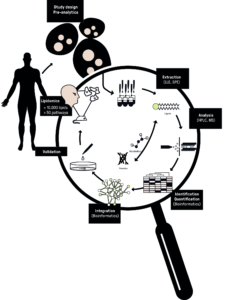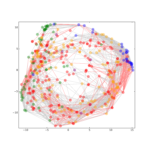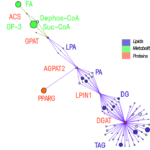
The lipidomics workflow
Lipidomics
Even with a lipid content of over 10% in the human body, lipids were not in the central scientific focus during the last decade. However, more and more evidence is provided that non-genetically determined biomolecules such as metabolites and lipids are the key to biomolecular regulation. Today it is obvious that lipids are not only important for energy homeostasis and as an environmental-cellular barrier, but also represent a central part of our signal transduction machinery. Disruptions of the sensitive lipid metabolism are highly correlated with different types of diseases including thrombocytopenia, metabolic syndrome, diabetes, obesity and hyperlipidemia. This is especially true for the latter ones, which are also reaching pandemic levels, causing a larger annual health burden than infectious diseases. Therefore, lipid metabolism is again becoming an emerging scientific field and is a central part of pharmacological research today (statins, cyclooxygenase inhibitors). Therefore the mission of the Lipidomics group in Vienna is to understand lipids in context with their proteins (enzymes) and building blocks (metabolites) in a true systems biology way.News
Pitfalls in Lipid Mass Spectrometry of Mammalian Samples: A Brief Guide for Biologists
A collaborative team of leading scientists, including Prof. Dr. Robert Ahrends, has published a crucial guide addressing the common pitfalls …
Lipidomics Forum 2024
The Lipidomics Forum 2024 took place from September 1-3 in Borstel, Germany, focusing on microbial lipids and their role in …
Projects

Adipogenesis
The rising prevalence of obesity globally presents a critical social challenge, threatening to reverse the progress made in life …

Computational Lipidomics

Platelet Lipidomics
Lipid signaling & metabolism in platelets Platelet integrity and function critically depend on lipid composition. However, the lipid inventory in …

Neurolipidomics


